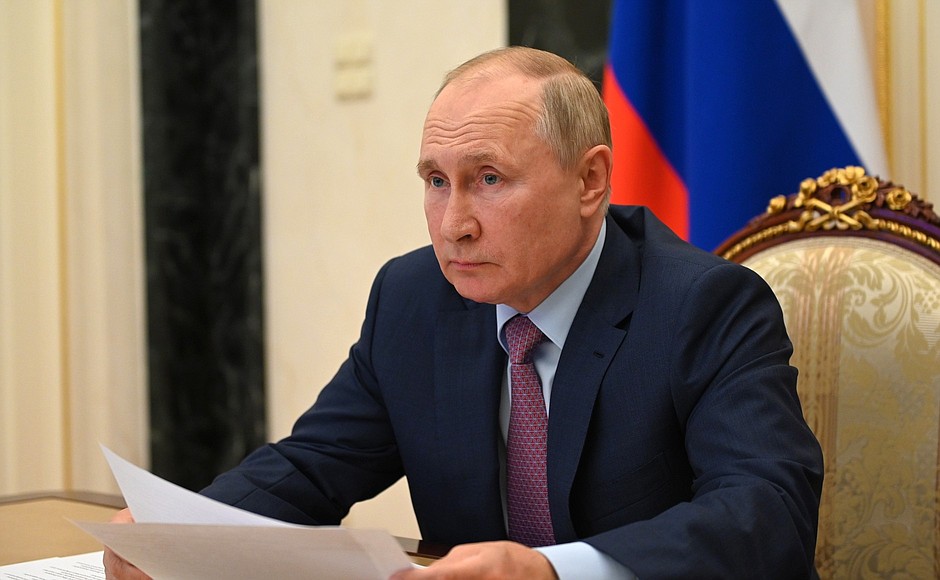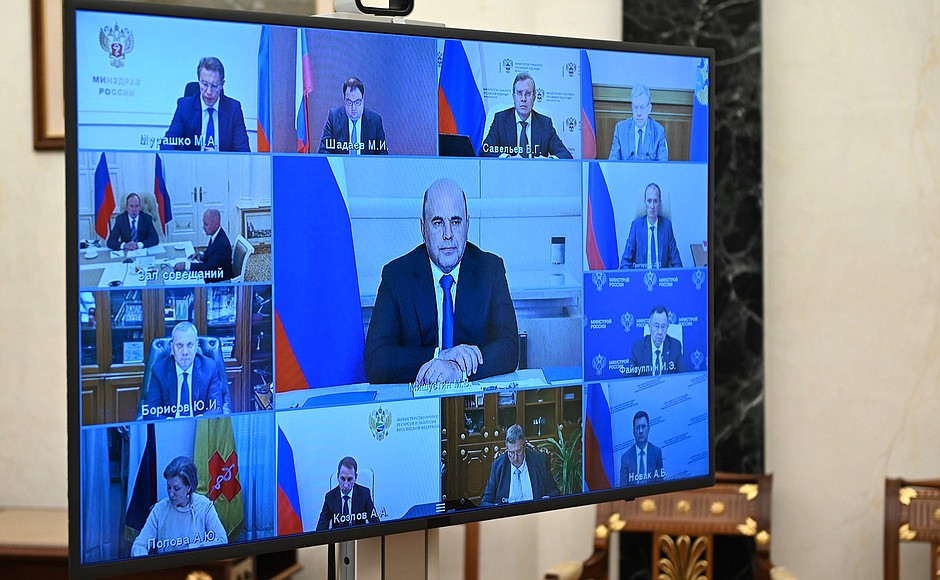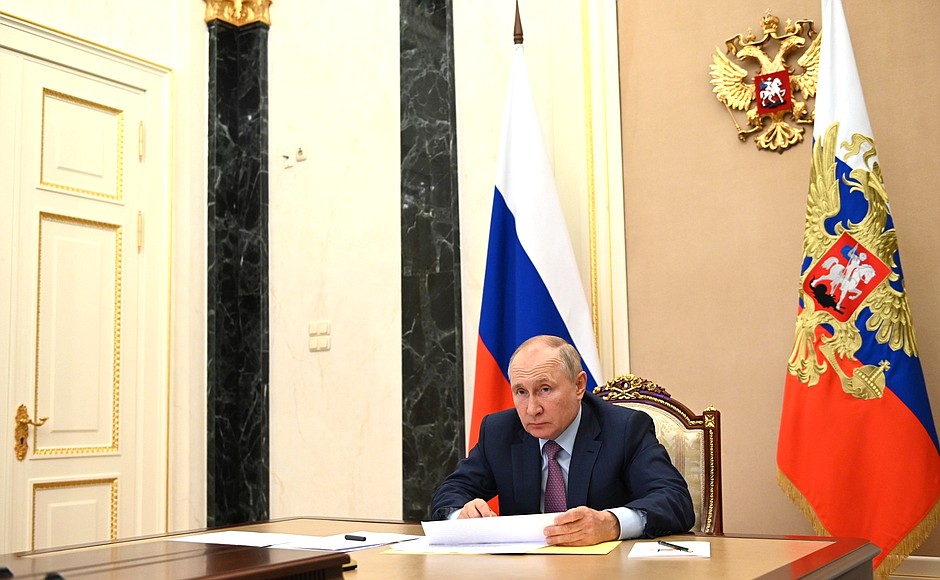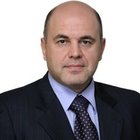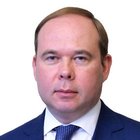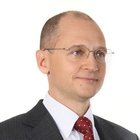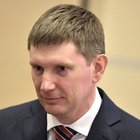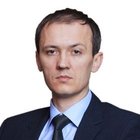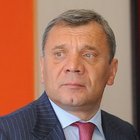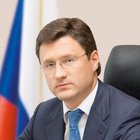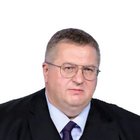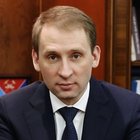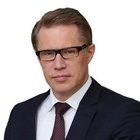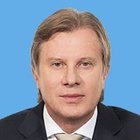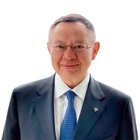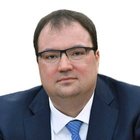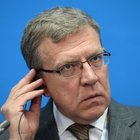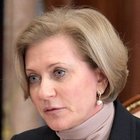The participants discussed the national socioeconomic development agenda.
Attending the meeting were Prime Minister Mikhail Mishustin, Chief of Staff of the Presidential Executive Office Anton Vaino, First Deputy Chief of Staff of the Presidential Executive Office Sergei Kiriyenko, Deputy Prime Minister and Chief of the Government Executive Office Dmitry Grigorenko, deputy prime ministers Yury Borisov, Alexander Novak and Alexei Overchuk, Minister of Economic Development Maxim Reshetnikov, Minister of Natural Resources and Environment Alexander Kozlov, Health Minister Mikhail Murashko, Transport Minister Vitaly Savelyev, Minister of Construction, Housing and Utilities Irek Faizullin, Minister of Digital Development, Communications and Mass Media Maksut Shadayev, Chairman of the Accounts Chamber Alexei Kudrin and Head of the Federal Service for the Oversight of Consumer Protection and Welfare and Chief Sanitary Doctor Anna Popova.
* * *
President of Russia Vladimir Putin: Good afternoon, colleagues.
The holiday season is at its peak, many people are taking a break, but not everyone – you and I must promptly respond to matters that cannot be left unattended.
There is a number of problems I would like to discuss during our meeting, bearing in mind that we agreed to resolve them promptly. I will speak about this later.
Unfortunately, wildfires and floods continue and we must react quickly. But we will focus on this at a separate meeting tomorrow.
I would like to start our current meeting with COVID-19 response efforts. Understandably, everyone is tired of this subject and conversations about it. That said, we must respond to the changing situation. This is why I would like to start our current meeting with a report by the Health Minister.
Mr Murashko, please.
Healthcare Minister Mikhail Murashko: Good afternoon, Mr President, Mr Prime Minister, colleagues.
The situation is stabilising now, and the increase in the number of patients receiving treatment under medical observation has decreased throughout the country, mostly due to the figures for Moscow, St Petersburg and the Moscow Region.
However, we can see that the situation in other regions remains tense, and the number of patients is growing. Today we have dispatched teams of specialists to some regions who will provide organisational, methodological and medical assistance.
The total number of patients currently under medical observation is 915,000. Of these, 78 percent are receiving treatment at home, and 196,000 are in hospitals.
We have enough hospital and ICU beds, but we have noticed that the current course of the disease calls for a greater involvement of emergency physicians, and that the number of patients in ICUs is larger compared to the previous periods. As I mentioned, we have enough hospital beds. We have 234,000 beds, together with the regions.
Of those in hospital, 11 percent are in a serious condition.
(The Minister went on to say that the number of young patients continues to increase, whereas the number of patients aged above 60 is decreasing thanks to the vaccination they received in spring and early summer. The Government continues to ensure that the patients who are receiving treatment at home are supplied with free medicines; they have already been provided to nearly three million such patients. The Government has allocated 85 billion rubles for supporting regional healthcare systems within the framework of combating COVID-19.)
Preventive measures remain a priority, both in the context of the current wave of the pandemic and in light of the possible appearance and spread of other diseases in the future.
By now, 38.9 million people have received the vaccine in the regions, according to the information we receive from all the relevant agencies. During the past week alone, the number of those who received the jabs increased by four million. Over 6,000 permanent vaccination stations have been deployed, alongside more than 2,500 mobile units and over 6,500 mobile vaccination teams.
Now, as concerns the actual availability of the vaccine and its production, a total of 53 million vaccine doses have been supplied domestically. The production rate grew by more than 300 percent in June and July. Every batch of the vaccine goes through exhaustive two-phase quality control by both the manufacturers and state-run labs which check all quality indicators.
The Sputnik Lite vaccine has also been rolled out and is available in all Russian regions. Sputnik Lite is used as a booster six months after the first vaccination and for the vaccination of people who had COVID-19, also six months after they recovered. In the past week, we have distributed 4.2 million doses and are now finishing up the delivery to all regions.
At the same time, we have started preparing for seasonal hikes in flu cases, as per your instruction. Thanks to effective and consistent efforts last year, we managed to prevent high flu morbidity.
As of today, we have signed state contracts to supply the flu vaccine to Russian regions. The first deliveries, to the northern regions and the Far Eastern Federal District, are scheduled for next week.
To summarise, we are preparing for the flu season and it is very important that, while we are getting ready for the flu vaccination campaign, people also get vaccinated against the coronavirus. Vaccination is especially important for elderly people. Protecting themselves and their loved ones should be a priority.
This completes my report. Thank you.
Vladimir Putin: Thank you.
Mr Murashko, the vaccination campaign is progressing faster in some regions than in others. We should summarise the best practices and implement them across the entire country.
We could consider allocating additional funds for that. In general, it is all possible and needs to be done as soon as possible. This is the first point.
Second, this morning we spoke about allocating additional funding for our leading research centres that work on developing medications for severe infections. Please report on this to the Prime Minister. I think it should be done shortly. Please submit your proposals.
(Addressing the Prime Minister) Mr Mishustin, Mr Murashko and I discussed several other issues today. He will report to you further. I hope you will respond to these issues accordingly.
Prime Minister Mikhail Mishustin: Will do, Mr President.
Vladimir Putin: Thank you.
I mentioned that tomorrow at a separate meeting we will address the issues of fighting wildfires and floods. All of this is largely, or almost all of this is due to climate change – both global and in our country.
I have already spoken about this, and experts are well aware of this: the average annual air temperature in the Russian Federation over the past 44 years has increased 2.8 times faster than globally. A significant part of our territory, about 65 percent, is located in the Extreme North, and many of these areas, settlements were built and settled on permafrost back in the Soviet years. We still do not have a unified system for monitoring the state of this permafrost.
Therefore, I now would like to ask Mr Kozlov to take the floor. We agreed earlier that a draft law on creating this system would be developed, so here is my first question: how is the work proceeding? It is necessary to develop and introduce it as quickly as possible.
Second. I would like to ask you to report in general on the development of the hydro meteorological and environmental monitoring service. I know that certain steps have been taken in this regard lately. I would ask you to update our colleagues and me on this matter.
Mr Kozlov, please.
Minister of Natural Resources and Environment Alexander Kozlov: Mr President, Mr Prime Minister, Colleagues,
The Roshydromet system employs 36,800 people. Correct forecasts and prompt responses of all services depend on their knowledge. They provide hydrometeorological safety.
Roshydromet’s observation network is a spider web that envelops the entire country. It includes over 11,000 observation points, 39 weather radars, 40 space antenna complexes and 11 space satellites.
(The Minister said that the forecast accuracy indicators are at the world level. Storm warnings on land are 95.5 percent accurate, and warnings at sea have 99.7 percent accuracy. Roshydromet experts can predict hail within three hours, avalanches within 72 hours, and fire and flood hazards within a week. The air pollution monitoring system in cities was created in the early 1970s. While the United States has quality standards for six substances and the European Union has such standards for 13 substances, Russia has them for 160 substances under state regulation. Observations are tailored to each city for priority substances that affect the health of residents. Roshydromet employees have developed a programme that can calculate the exact pollutant. It is based on online readings of automatic stations. Its pilot experiment is underway. Roshydromet does all climate research in the country.)
Mr President, as you have said, according to the [weather] service, the warming rate in Russia is 2.8 times faster than that in other parts of the world. The permafrost is thawing, while it accounts for 65 percent of the territory of our country where over 15 million people live. Russia has no integrated monitoring system today, so we cannot see what is happening to permafrost in reality.
The Russian Ministry of Natural Resources is set to create the first government-funded integrated monitoring system based on the monitoring network operated by Roshydromet. Monitoring will allow to forecast the fallout from likely accidents and to learn to prevent accidents.
We plan to operate 140 stations, which are, essentially, wells up to 30 metres deep equipped with domestically manufactured sensors. We will submit a federal law on creating this type of state system during the autumn session. The estimated cost of the project is 1.7 billion rubles.
Generally, to obtain more accurate data from the northern regions, we are also ready to upgrade the 240 observation stations we have in the Arctic zone. Most of the stations are obsolete and we need to install new power equipment, communications systems and modern measuring devices.
The 2.6 billion rubles assigned to this modernisation project this year under the state programme Environmental Protection will allow us to completely upgrade 26 stations and convert them to automated operation without human involvement and also to partly modernise 97 stations. In the future, we plan to boost this backbone observation station network and also develop a system of voluntary surveying aboard ships.
We believe weather stations on ships are a good solution for the Arctic seas. There is nothing new here, this practice was common in the Soviet Union: by the early 1990s, about 400 vessels had been equipped with weather stations, compared to a mere 83 today. This will be done at the expense of the ship owners: we can convince them of the need to install devices onboard to transmit data to the Roshydromet system. Every vessel will supply data to us, including along the Northern Sea Route. We brought up this issue at a Marine Board meeting and have received support; now it is in the process of being completed.
And, of course, the development of science. For example, next year, Roshydromet scientists will begin Arctic exploration that is not possible now. This will happen due to the opening of the North Pole ice-resistant drifting platform. The platform has been under construction at the Admiralty Shipyards since 2018. It is about 84 percent complete.
I would like to elaborate a bit on this unique vessel. This design is a first; there are no vessels like it in the world. The platform will freeze into the ice and drift autonomously for up to two years. Helicopters will be able to land there, and various types of Arctic equipment will be based there. There will be 16 research laboratories aboard. Polar scientists will carry out fundamental and applied research on the ice cover in meteorology, oceanography, ionosphere and climate studies, geology and seismology.
Another step in science: starting in 2023, as envisaged by the Federal Space Programme, after the launch of the second Arktika-M meteorological satellite, we will begin to receive continuous data from the Earth’s poles and polar oceans. The first satellite was launched in February and is the world's first meteorological satellite on a highly elliptical orbit. Once both satellites are operational, scientists will be able to make more precise forecasts, monitor emergencies, and most importantly, receive new data for global climate research.
Thank you for your attention. My report is over.
(Next, at the President’s request, Minister of Construction, Housing and Utilities Irek Fayzullin spoke about the improvement of the major repairs system for residential buildings. Today, the programme includes 724,000 blocks of flats with 2.6 billion square metres and 93 million residents. Over 45,000 residential buildings are renovated annually under the programme since 2014. The minister also spoke about the creation of a unified system of housing registration based on the electronic passports for flats and residential buildings. This system will be integrated into the Unified State Real Estate Register and will contain data on minor and major repairs, the technical condition of structural elements and the entire building as a whole. This information will be accumulated throughout the building’s life.)
Vladimir Putin: Mr Shadayev, one of the targets for this year is to provide high-speed internet to all the cities and towns in the approved population bracket, and roads. How is this work coming along?
Minister of Digital Development, Communications and Mass Media Maksut Shadayev: Mr President, Mr Prime Minister, Colleagues,
As many as 87 million Russians use the internet on a daily basis; nine out of ten people use their mobile devices, which means 80 million people use their tablets and smartphones every day to go online.
The majority of these subscribers, about 80 percent, even a little more, already use high-speed access. Overall, the share of LTE base stations that offer high-speed connectivity already exceeds 50 percent on the telecom operators’ networks. As for the cost of high-speed mobile internet, Russia is consistently among the cheapest countries. This is very important because we are expanding this infrastructure without raising subscriber fees.
True, unfortunately, our access infrastructure is not developing evenly, because the operators primarily build fourth-generation networks in large conurbations, where it is economically efficient due to the high concentration of residents. As a result, people in small towns and villages are often deprived of the opportunity to use mobile internet. We have the same problem along federal and regional public roads: operators find it unprofitable to build infrastructure, and therefore mobile internet is often unavailable there.
Last year, we made some changes to the federal law, which now requires providing access to mobile internet in small towns with populations of between 100 to 500 people. These projects are financed by special deductions from telecom operators, which are channeled into the so-called universal service fund, and this year, we will provide access to mobile internet in more than 1,200 towns and villages in this bracket.
We will launch a vote on the Gosuslugi.ru state services website in September, in order to put together a priority connection programme for next year. All written requests will also be taken into account. First of all, we will provide mobile internet in places where we have massive requests from the residents, and this will be an absolutely transparent situation.
Additionally, Mr President, as we made a decision on Monday to extend the use of frequencies that are used for high-speed mobile internet, as we were making that decision, we reached an agreement with the telecom operators on additional social obligations. To be honest, your instruction – the one you made at the Strategic Development Council meeting – helped us with this. We have negotiated that in 2024, the operators will complete the high-speed mobile internet infrastructure in all places with populations of more than 1,000 people, at their own expense. They will invest their own funds as part of a social responsibility programme.
(The Minister reported that operators had agreed to cover, at their own expense, over 80 percent of federal roads with their networks by 2024. However, there are certain issues concerning the cost of connecting base stations to power supply and laying communications cables along power lines. Mr Shadayev offered his own suggestions on how these issues could be solved. He also asked the President to issue instructions for regional officials on providing technical conditions to enable base stations to be connected to the power supply, which, in his opinion, would ensure that the goal could be achieved in 2024.)
If we succeed, the number of high-speed mobile internet users will increase from 80 million to over 100 million by 2024. We do have the potential to achieve this.
There is one more aspect I would like you to note. When the State Commission passed its resolution on radio frequencies, we introduced very tough restrictions on supplies of foreign base stations, starting from 2023. Essentially, this means that from January 1, 2023, only Russian base stations can be installed in the networks of our mobile service operators.
This decision took a lot of consideration. We held extensive talks with major manufacturers of base stations, reaching an agreement with two of them on localising their production in Russia and transferring rights to our Russian partners for manufacturing modern LTE base stations to ensure high-speed internet access.
We believe this will substantially decrease the dependency of our critical telecommunications infrastructure on foreign manufacturers, as well as reduce sanction-related risks and, most importantly, will allow us to use the production capacities currently being developed for microelectronics and electronic components so that these components can be used in the base stations that are to be installed in our communication networks.
Thank you very much. This completes my report.
Vladimir Putin: Thank you.
What companies produce this equipment in our country?
Maksut Shadayev: There are several companies. For example, Rostec. AFK Sistema wants to produce it, as does USM Group. Basically, our largest operators are the ones who want to localise this production. Rostec has a big 5G equipment programme, so international vendors are also interested.
Vladimir Putin: This is exactly how it is supposed to be. We should support this and create a competitive environment since there are several domestic candidates. This is exactly what we need. So, this is what we should do.
As concerns working with the regions, the first and second issues concerning power grid companies, they are not foreign to us, so installing communications equipment on transmission towers can be regulated. Rates must not be arbitrary. What I mean is the telecommunications companies are working for the entire country in this case rather than for an agency or an industrial sector.
Therefore, Mr Shadayev, please prepare, in cooperation with the Executive Office, draft instructions on the matter. I will sign them.
(Following Maksut Shadayev’s report, Alexander Novak joined the discussion to comment on questions related to the energy sector. He talked about challenges with connecting cell towers to the grid, as well as the cost of laying cables alongside power lines. Vladimir Putin proposed calculating all the related costs and submitting these estimates to the Government in order to decide where tariffs should be increased and by how much, whether this would be advisable from an economic perspective, and in what cases this spending should be financed from the budget. The President went on to emphasise that this is a national goal and asked the Prime Minister to issue the necessary instructions to state agencies in order to find a way to balance budget spending with higher tariffs).
Vladimir Putin: To conclude, there is another question on the agenda. On January 1, 2022, the law introducing electronic waybills is scheduled to come into force. How are preparations for implementing this law progressing and what are the next steps?
Mr Savelyev, go ahead please.
Minister of Transport Vitaly Savelyev: Mr President, Mr Prime Minister, colleagues,
Mr President, allow me to thank you for supporting Federal Law No. 336 that provides for the vehicle transport system using digital shipping documents effective January 1, 2022. This law was drafted in execution of your instructions, and starting January 2022, all parties involved in the road transportation, including consignors, carriers, consignees, electronic workflow operators, and regulatory agencies, will be able to use electronic waybills, should they choose to do so, through the public e-waybill information system. The Ministry of Transport will act as the system’s operator.
Based on the experience in the voluntary adoption of digital waybills, the Ministry of Transport will then draft proposals on making this mandatory effective in 2023. This means that in 2022 we will opt for a soft introduction in order to test the programme, and in 2023 it will become a mandatory requirement for everyone: we will make everyone, ask them all, request them to use it. So, there will be a gradual transition to electronic workflow for all parties involved in transportation process.
For the sake of comparison, it has to be noted that more than 3 billion waybills were printed in Russia in 2020, including 1.56 billion original waybills plus duplicates and copies. This is like 700 railway cars filled with paper. There is one more fun fact our experts have shared with us: one paper document costs about 100 rubles if your factor in the cost of labour, paper, ink, electricity, and related expenses. This means that we can save billions. A transition to e-documents will help us cut transaction costs, thereby reducing the end price of products. After all, there is always a transport component in the price of any product.
We believe measures to digitise workflow are especially important in the context of the coronavirus pandemic. This should almost eliminate carriers’ personal visits to the authorities, should simplify and speed up the process of obtaining the corresponding documents, and also significantly reduce the spread of infection through person-to-person contact.
(The Minister also spoke about the next stage in the development of electronic document management in road transport, where digital trip tickets will be introduced. A relevant draft law has already been prepared and will be submitted to the Government by the end of this year. More than 2 billion trip tickets will become digital; making 3 billion waybills and 2 billion trip tickets digital will mean that 90 percent of all transport documents are digitised. This, in turn, should almost double the commercial speed of goods movement by 2024. All these measures will embrace more than 7 million active participants in the chain – carriers, drivers, consignors, consignees, and shipping agents – and will remove mala fide market participants from the ‘grey zone’ and increase the tax inflow to the state.)
Further digitalisation of paperwork will involve the creation of an integrated environment for the exchange of documents between market participants from all types of transport, including motor, rail, air and sea. This is the first tangible step towards the development of seamless multimodal transport both inside Russia and along international transport corridors in the EAEU, and further towards the introduction of self-executing contracts for mutual settlements between all parties in the transport market.
Further on, information exchange between the State Information System of Electronic Transportation Documents and the integrated portal of public and municipal services will make digital workflow services available to the public in Russia.
We will complete everything on schedule. I think the effect will be clear, and we will all see it.
Thank you for attention. This concludes my report.
Vladimir Putin: Mr Savelyev, what you have just reported has already been prepared by the Ministry?
Vitaly Savelyev: Exactly. We are already working on by-laws in parts of waybills. We hope that we will do all this by the end of the year. This will be a government resolution. And from January 1, 2022, we will start in soft mode – about 60 percent of all market participants will work with waybills. In parallel, we will introduce a draft law, where your support will be needed, on 2 billion trip tickets, so if we do not make it into the autumn session, then we will adopt it in the spring session (there will also be 18 months for soft implementation), and somewhere in mid-2024, trip tickets and waybills will work together. This is a huge amount of paper documentation that we will simply remove from the market.
Vladimir Putin: I see.
Mr Savelyev, with regard to the draft law and everything connected to it, as well as the work on bylaws, drive over here right now, report to me personally, we will just talk with you. I'm at the Kremlin now.
Vitaly Savelyev: I understand.
Vladimir Putin: Drive over right after the Government meeting.
Thank you very much. All the best.
